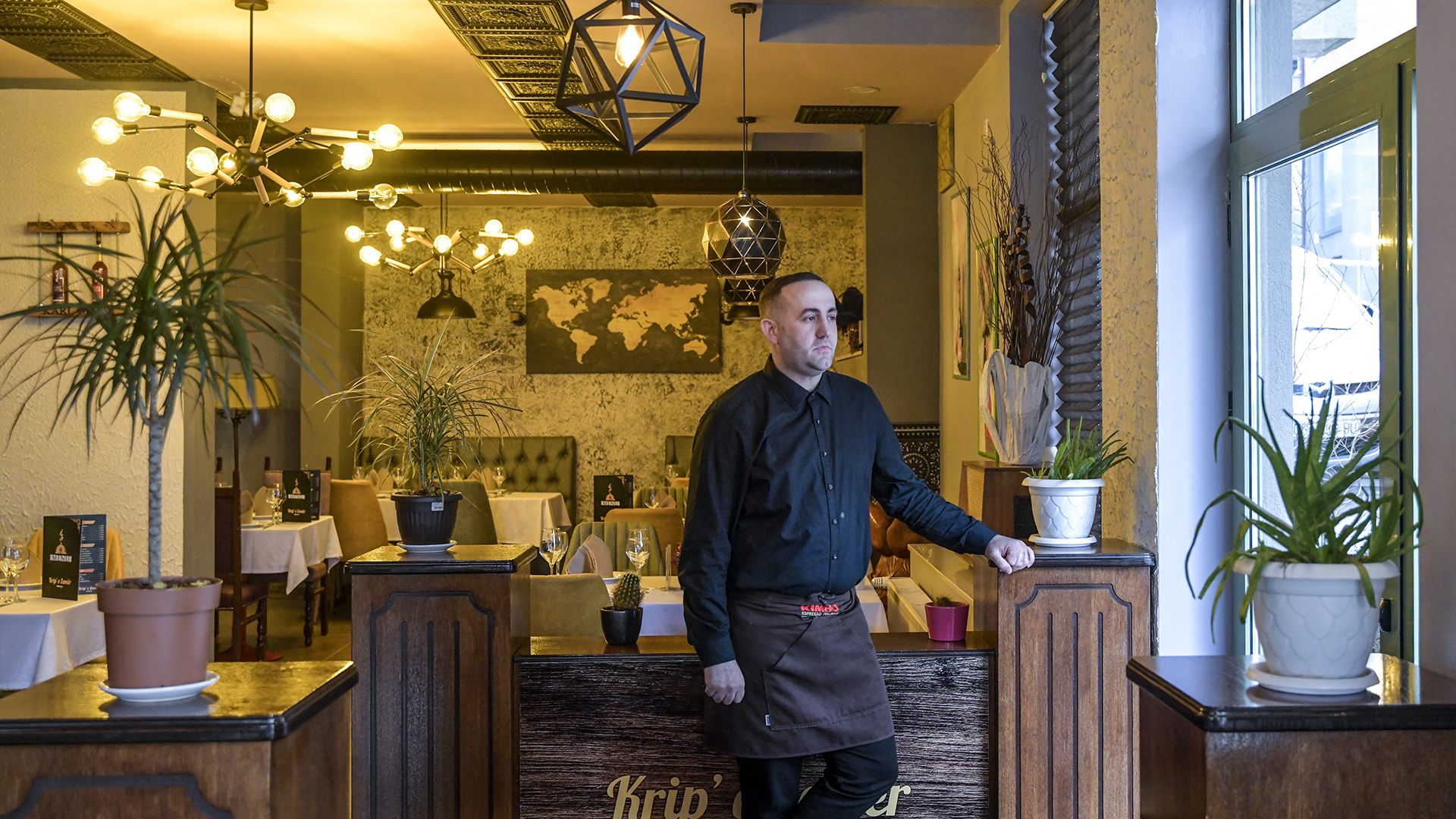
The government’s pendulum — between the pandemic and economy
Controversy and criticism over the 12 day gastronomy sector shutdown: what effect could it have?
Bylykbashi knew that whenever the decision for strengthening the measures would be taken by the new government, his business would be the first on the list of those that would close.
Now that over a year has passed since the first closing of the gastronomy sector at the beginning of 2020, this following closing has been followed with vast losses.
“Kosovo needs measure monitoring — this is the only way we can manage the pandemic,”
Bujar Vitia, health journalist
Ngadhnjim Avdyli
Ngadhnjim Avdyli is a former K2.0 staff journalist, covering mainly politics, governance and social justice issues. He has a degree in journalism from the University of Prishtina.
This story was originally written in Albanian.